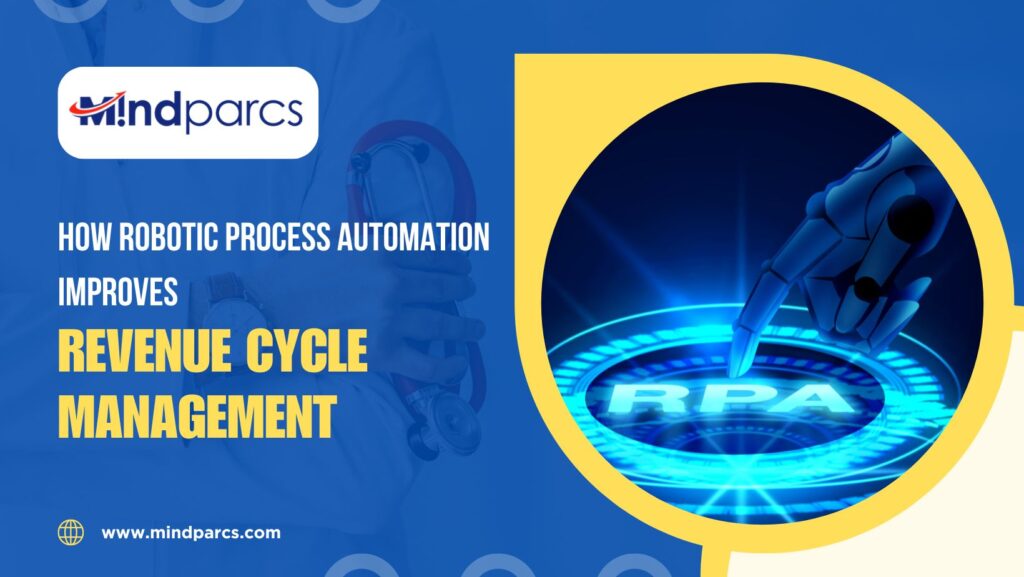
How to Overcome the Common Challenges in Podiatry Medical Billing
Overcome the Common Challenges in Podiatry Medical Billing Podiatrists have a crucial role in securing the mobility and overall health of individuals. However, their practices

Based on providers goals, technology in healthcare industry is evolving in various form, especially on Revenue cycle management. One of the more popular technology in RCM is robotic process automation (RPA). It saves practices time and money by automating manual, repetitive process within RCM.
Robotic process automation is made like a virtual assistant that can handle repetitive, time-consuming tasks in daily administrative processes. This RPA mimics what in-house staff do on a daily basis to free them up for more focus on patient care.
Taking advantage of RPA technology can significantly improve revenue cycle by takeover some of the manual tasks. It performs regular tasks like claims processing much faster than human and reduce the errors from manual data entry, reduce cost to collect, turn around faster reimbursements, and minimize claim denials.

Healthcare providers can also use RPA quickly to handle more transaction volume, a feature many organizations may value as they focus on merger and acquisition activity.
Overall, RPA can improve the patient experience by making the billing process smoother. The well-organized revenue cycle means bills are getting settled faster and with less errors.
With various advantages, RPA can address numerous challenges and streamline critical processes.
Healthcare providers have found that appointment scheduling and other related tasks can be managed with RPA. With a MGMA poll 2022 finding that about half of medical groups report an increase in their patient no-show rates.
The use RPA can automate some of the strategies practices have used to reduce no-show rates and other scheduling problems. The technology can grab patient data to assist with registration and schedule appointments by patient diagnosis, location, provider availability, and other criteria.
Verifying patients are eligible for the medical services they required for is essential to fast and accurate reimbursement. This is a manual process in which staff checks the eligibility against payer rules and guidelines. Here the robotic process automation can stop some of that manual process to automate patient eligibility verification.
RPA can get data from payer portals and the EHR or practice management system to verify insurance status and eligibility, leading to quick appointments and reduced amount of claim denials for eligibility issues.
Claims processing comprises many steps to create and submit a claim to a payer for reimbursement, after which providers receive a payment. A single mistake in this process could lead to a delay in payment or claim denial.
A mistake may not be a major one, either. For example, a survey of healthcare financial leaders in 2023 found that missing prior authorization, eligibility errors, lack of documentation to support medical needs, and incorrect patient details are the top most reasons for claim denials.
To prevent these avoidable errors, RPA can be applied to claims processing and adjudication steps and reduce the risk of claim denials.
Prior authorizations are the biggest headache of healthcare’s. Providers not only specify prior authorizations as the most challenging regulatory issue they face, but also a majority also agree that they cause care delays, abandoned treatment, and adverse clinical outcomes.
Research shows that prior authorization requirements increasing their difficulty on providers, so many practices are turning to incorporate RPA to assist them complete prior authorizations.
RPA can make checking a prior authorization’s status quicker. Practices can implement technology that use RPA to identify patient medical records in real time to recognize the necessary data for a prior authorization request.
Robotic process automation technology has found a happy home in revenue cycle management, and many healthcare providers are obtaining the success. Practices should leverage RPA to realize cost and time savings, as well as increased productivity.
MindParcs Inc is the top medical billing companies in United States offering robotic process automation in revenue cycle management. To know more about the RPA, call our expert today!

Overcome the Common Challenges in Podiatry Medical Billing Podiatrists have a crucial role in securing the mobility and overall health of individuals. However, their practices

Urgent Care Medical Billing Mistakes & Solutions to Resolve In healthcare industry, urgent care specialties play an important role in offering efficient medical services. However,
